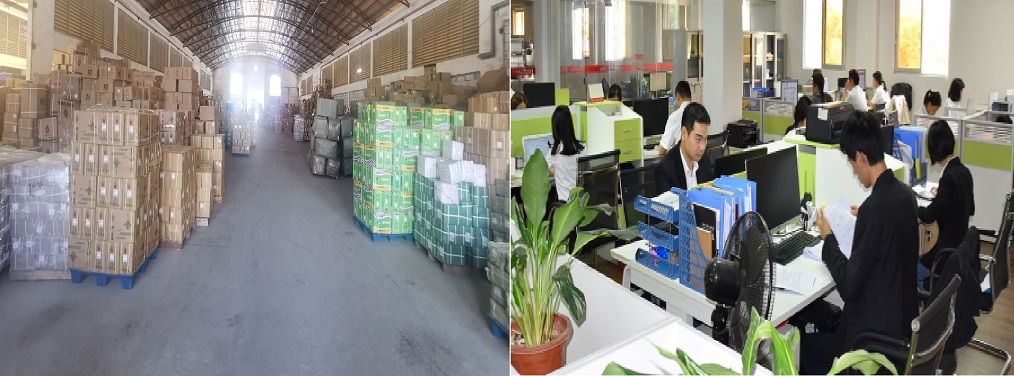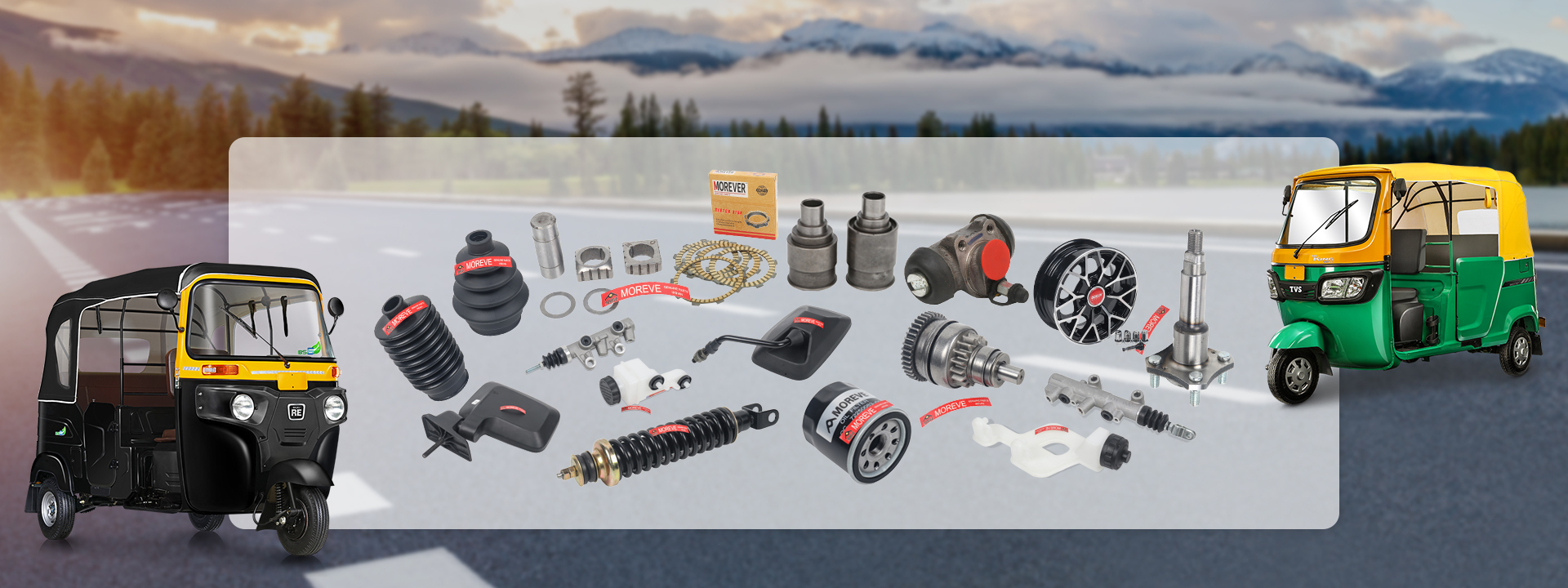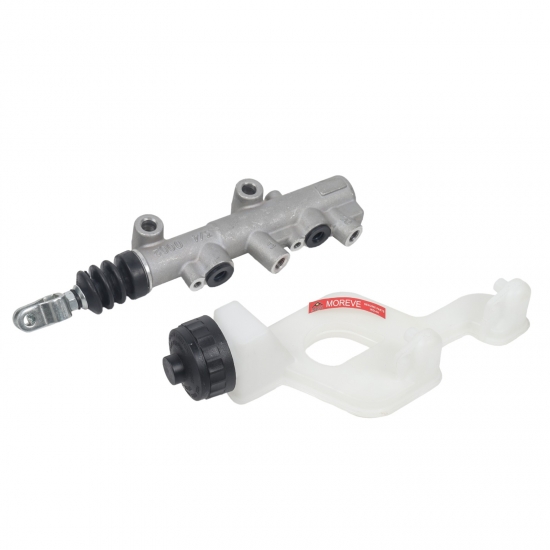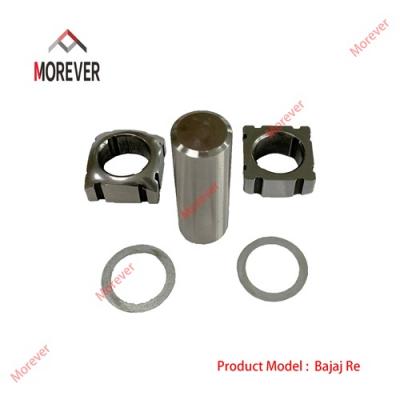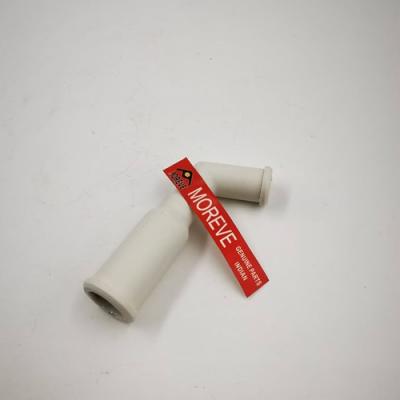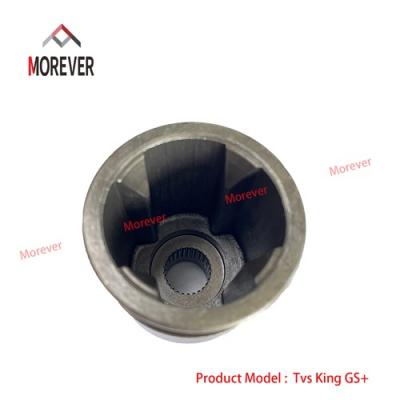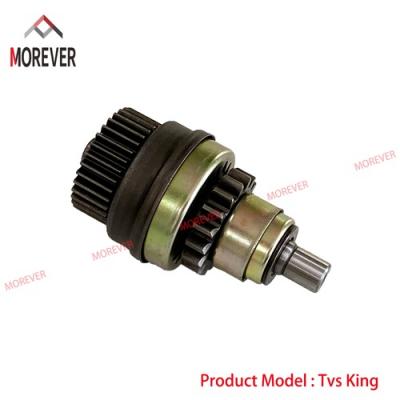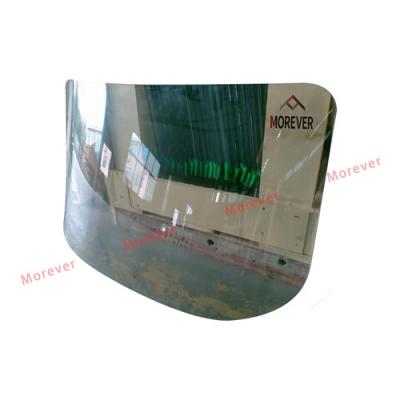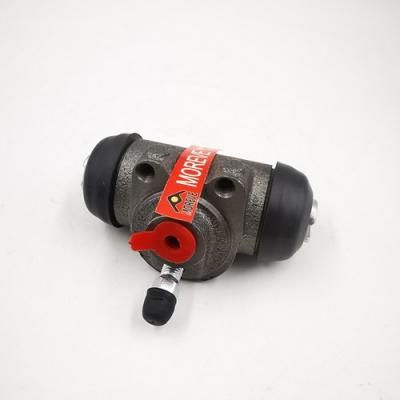Master cylinder Tvs king Original quality
Model: Bajaj Re
Brand: Morever
Material: Aluminum alloy(ADC12) cylinder and EPDM rubber sealsDays of Delivery: 30 days
Quality: A+ grade
Guarantee: 3 months after fixing
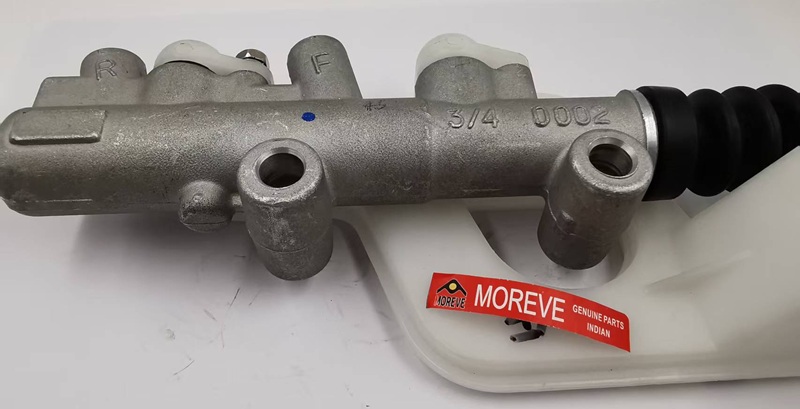
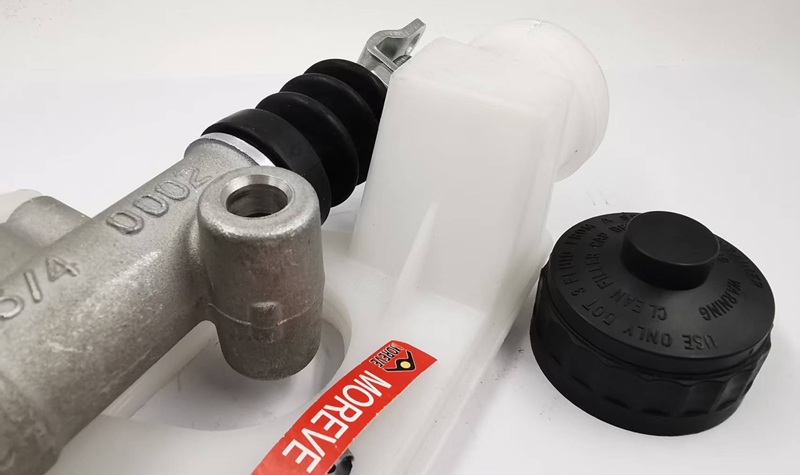
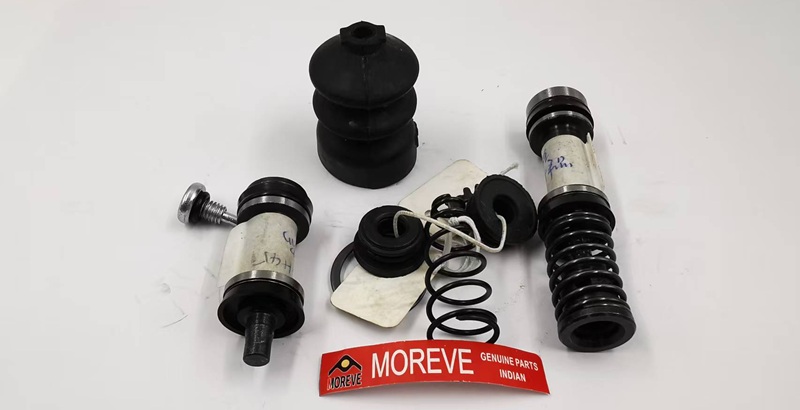
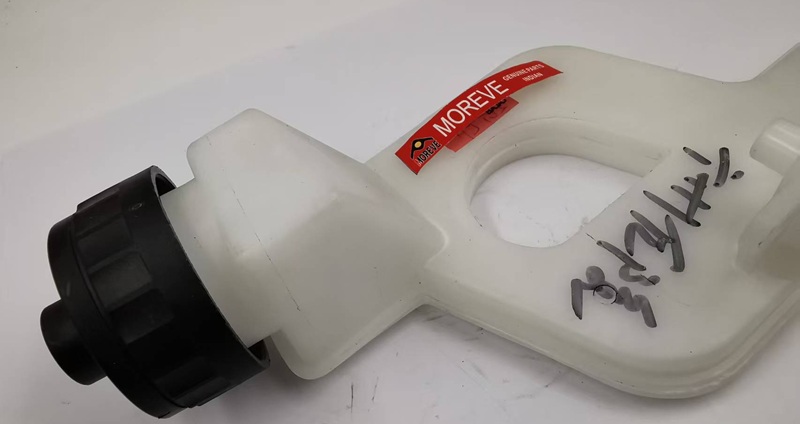
Main components of Brake master cylinder Tvs king
1. Master cylinder housing and brake fluid reserve tank (Reservoir & Body)
The material is generally aluminum alloy (lightweight, corrosion-resistant) or cast iron (high strength, low cost). Equipped with a reservoir (Reservoir): Store brake fluid, usually integrated with the master cylinder or split design, the split type requires a level sensor. The master cylinder cavity contains two hydraulic chambers, the primary (Primary) and the secondary (Secondary), that is, a dual-circuit design to improve safety.
2. Piston Assembly
It consists of a primary piston and a secondary piston. The primary piston (Primary Piston) is directly connected to the brake pedal push rod to receive the driver's input force. The front end has a sealing ring to push the brake fluid into the front wheel or rear wheel circuit. The secondary piston (Secondary Piston) is pushed by the primary piston through hydraulic pressure to control the brake circuit of the other set of wheels. Generally, a dual-circuit design is required, so that even if one side fails, the other side can still provide partial braking force.
(3) Cup Seals, generally made of oil-resistant and high-temperature resistant EPDM or fluororubber (FKM), are mainly used to prevent brake fluid leakage and maintain hydraulic pressure.
3. Return Springs, usually located between the primary and secondary pistons, ensure that the piston returns quickly after the brake is released. If the spring fails, it will cause brake drag, that is, the brake pad cannot return completely.
4. Compensating Port (Inlet Port), this hole mainly connects the reservoir and the master cylinder cavity, and is used to replenish brake fluid, that is, replenish the fluid when the piston returns, and release excess pressure to prevent the brake fluid from overheating and expanding and causing locking.
5. Outlet Valve
Connects to the brake line and delivers high-pressure brake fluid to the slave cylinder. Proportioning Valve, some models are integrated into the master cylinder, adjusts the front and rear braking force distribution, and can prevent the rear wheels from locking.
6. Sensors and electronic components (some modern models)
Level sensor, used to monitor the brake fluid in the reservoir and trigger an alarm when it is insufficient. Pressure sensor, used for real-time monitoring of hydraulic pressure in electronic control systems such as ESP and ABS.
7. Dust Boot, covers the end of the push rod to prevent dust and water vapor from entering the master cylinder and causing corrosion to the piston.
Working principle of brake Brake master cylinder
When the driver steps on the pedal, the push rod pushes the primary piston to close the compensation hole, builds up hydraulic pressure, and then the primary piston pushes the secondary piston, at which time both circuits are pressurized at the same time. When the driver releases the pedal, the spring pushes the piston back, and the compensation hole reopens to release pressure.
Common faults and solutions for the master brake cylinder
1. The brakes are too soft or the braking force is insufficient. Usually, the braking stroke becomes longer or the brake response is slow, and you have to increase the force to step on the brake to barely slow down. The possible reasons are that the internal leather cup of the master brake cylinder is damaged, resulting in hydraulic leakage, insufficient brake fluid or a small amount of air mixed in the oil circuit. You can try to replace the seals of the master brake cylinder, such as the main leather cup and the auxiliary leather cup, check and drain the air in the brake system, and replenish the brake oil.
2. The brake pedal does not return or returns very slowly. It manifests as difficulty in starting the vehicle or slow driving after refueling. It may be that the piston of the master brake cylinder is stuck or the return spring fails, the brake oil circuit is blocked, and the hole may be a fault in the brake cylinder.
The solution is to disassemble the master brake cylinder, check whether the piston is stuck, and replace it if necessary; replace the return spring to ensure that the pedal can rebound normally; check the brake oil circuit to eliminate blockage or leakage problems.
3. Brake deviation (one-sided braking), specifically manifested as the vehicle deviates to one side (such as left or right) when braking, and the steering wheel is difficult to control, especially when braking suddenly.
Possible reasons include expansion or damage of the piston oil seal on one side of the brake master cylinder, resulting in uneven braking force on the left and right, or leakage or jamming of the brake sub-cylinder
The solution is to replace the brake master cylinder oil seal, ensure the hydraulic balance on both sides, check the brake sub-cylinder, and replace it if there is leakage or jam1.
4. Sudden brake failure, specifically manifested as the pedal goes directly to the bottom when stepping on the brake, without braking force; the vehicle cannot slow down during emergency braking. Possible reasons are serious leakage of the brake master cylinder (such as rupture of the master cylinder or failure of the seal), or rupture of the brake oil circuit or burst of the sub-cylinder.
The solution is to stop the car immediately to avoid further driving, replace the brake master cylinder (if the internal damage is serious), check the brake oil pipe and sub-cylinder, and eliminate the leakage point.
5. The brake pedal is too hard (cannot be stepped on), the brake pedal is abnormally hard, and it needs to be stepped on hard to brake; the braking effect is poor, and the vehicle deceleration is not obvious.
Possible reasons include failure of the brake booster pump (vacuum booster), resulting in no boost, the brake master pump piston is stuck, and hydraulic pressure cannot be established.
The solution is to check the vacuum booster pump, if it leaks, it needs to be replaced, disassemble the brake master pump, check whether the piston is stuck, and replace it if necessary.
6. The brake master pump leaks oil. The brake oil level drops and the pedal becomes soft. The possible reason is that the master cylinder seal is aging or damaged. The solution is to replace the brake master pump seal or replace it as a whole
Bajaj master cylinder brake production and quality control
(1) Incoming materials must be inspected. Cylinder bodies are usually made of high-strength aluminum alloy (such as ADC12) or cast iron (HT250). Pistons are generally made of engineering metal (such as 45# steel). Seals are made of oil-resistant and high-temperature resistant materials such as fluororubber (FKM). Springs are made of stainless steel or carbon steel and require rust prevention.
(2) Cylinder body processing (casting/machining)
Aluminum alloy cylinder bodies are generally high-pressure cast (HPDC) or low-pressure cast. Machining procedures include turning, drilling, tapping, grinding, etc. to ensure that the inner wall finish of the cylinder body Ra ≤ 0.8μm, the cylinder body diameter tolerance requirement is ±0.01mm, and there are no burrs, cracks and other defects on the surface.
(3) Piston processing, turning + surface treatment (such as chrome plating), piston outer diameter tolerance (±0.005mm), smooth surface, no scratches.
(4) Seal assembly
Assemble the main seal ring (main leather cup), auxiliary seal ring (auxiliary leather cup), and dust cover, using automatic or semi-automatic pressing equipment to avoid damaging the seals. Ensure that the seals are not twisted or damaged during assembly, and lubricate with brake oil compatible grease after assembly
(5) Assembly
Ensure the correct assembly sequence, first install the piston, spring, and seal into the cylinder body, then the reservoir, oil pipe joint, sensor, etc.
(6) Functional test, first check whether the main cylinder is leaking (pressurization test), and then check whether the piston moves smoothly. Perform hydraulic test to simulate brake pressure to test sealing and return performance. Maintain pressure test at the specified pressure to ensure no leakage, and ensure that the piston returns normally without sticking.
(7) Cleaning and rust prevention. Ultrasonic cleaning to remove processing residues, rust prevention treatment, spray rust prevention oil or passivation treatment
Key Steps of brake master cylinder Quality Control
| Items |
Key control points |
Test methods |
|
Raw materials Material |
Material, hardness, size |
Spectral analysis, hardness tester, caliper |
|
Machining |
Cylinder inner diameter, roughness |
Pneumatic measuring instrument, roughness tester |
|
Seals |
No damage, correct installation |
Visual inspection, pressure test |
|
Assembly |
Torque, correct sequence |
Torque wrench, error-proofing tooling |
|
Testing Sealing |
Sealing, stroke |
Airtight tester, hydraulic test bench |
|
Cleanliness |
No metal chips |
oil stains Cleanliness tester |
Distributor comments
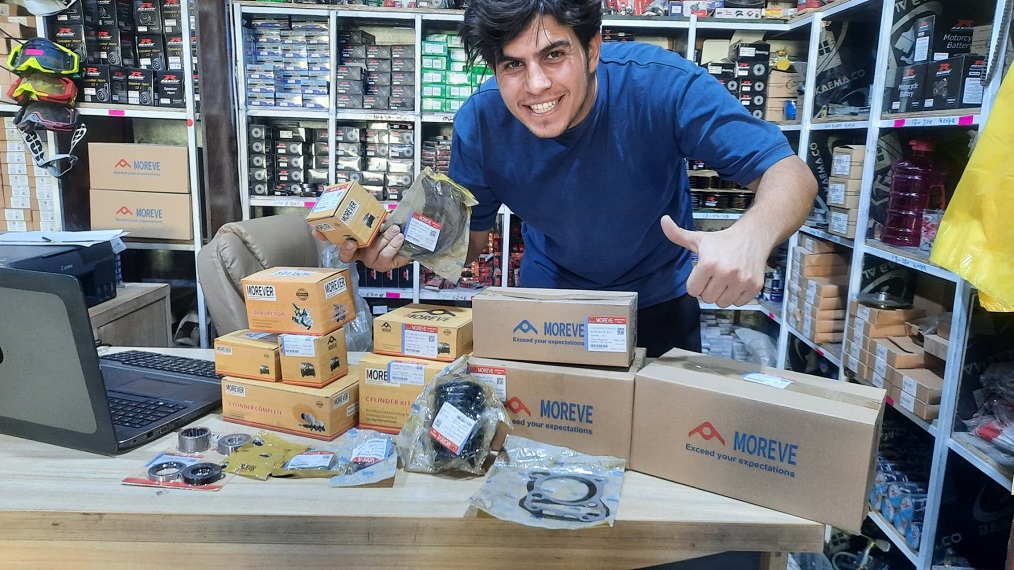
Our Warehouse and Office
